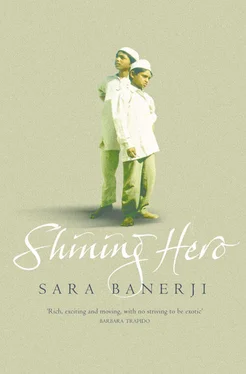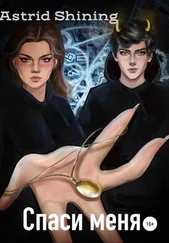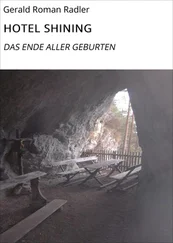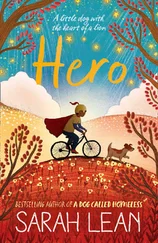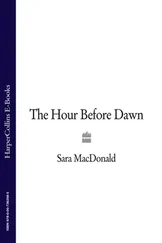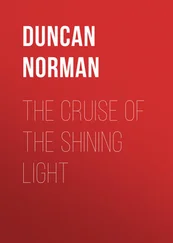‘I am tired,’ said Pandu. ‘I never intended to become a sweet maker.’
Ignoring him the old man went on, ‘Or we fry this with some of the ghee, rosewater, cardamom pods and jaggery till it goes thick and stiff and press it into moulds till we have shandesh …’
Pandu groaned.
‘As a small boy you were somewhat lazy and I see this has still not altered,’ said the gwala sternly. ‘Now we come to the feeding and the milking of the animals.’ He told Pandu that the animals must have hot feeds each evening of rice bran boiled with jaggery and that the cows would not let down their milk unless the calves were allowed first suck.
‘You keep a little muzzle on her baby during the day and at milking time you let baby have a little suck. Then mummy lets down milk and you give a pull. After a while mummy will find out it is your fingers and not baby taking the milk and she will pull it up again. Then you let baby have another, and so on.’
Pandu looked bemused, ‘But in the West they take the calves away from the cows at birth.’
The old man looked as though he was going to cry. ‘This is a terrible cruel thing. These poor Billaty cows. How much they must suffer. But then how do these foolish Billaty people get milk?’
Pandu shrugged. ‘I don’t know how, but they do.’
The old man went off at last, bemused and mumbling at the extraordinary ways of foreign cows, the cruel ways of foreign people and the terrible ignorance of the zamindar.
Pandu was thrilled with his new son, and when Koonty breastfed her child, Pandu would sit at her side, stroke her hair and murmur, ‘You two are the joys of my life,’ and think that he was the happiest man in the world. He would come each evening to watch with delight as Boodi Ayah bathed the new baby and pressed whiskery kisses on his body. ‘He is a big boy even now and when he is a man he will be magnificent like his Daddy,’ Boodi Ayah told Pandu. She was a hill tribe woman from Bihar with limbs like charcoal sticks that looked very black against the pure white of her short blouse and dhoti that exposed her bandy legs and large cracked feet.
After Adhiratha died Dolly wrote a letter to her parents, telling them what had happened to her and explaining about Karna. After a very long time her father sent her back a letter, written by the local scribe, in which he said that she should only come back to them if there was absolutely no other way she could survive. ‘For you are a widow and in this village such a person would, a generation ago, have been expected to perform suttee and even nowadays her being alive gives a certain offence in the villages. But as for this foundling child, we have barely enough food for our own stomachs and certainly not enough to feed another woman’s brat.’ He added, ‘I am speaking for myself and not your mother.’
Dolly cried when she read this letter, then she tore it up.
In the months that followed she would wake in the morning and sometimes her mind would trick her into thinking that Adhiratha was still there. She would reach out for him, her hand feeling around in the dark and it would be long moments before she would be plunged back into the sadness. There were happy nights when she dreamt that he was still alive so that during the day she would long for sleep, where she could find him. She tried for a while to continue washing clothes, but the money was not enough and the day came when she could no longer afford the room.
It was May and very hot the day she stepped out of the room where she and Adhiratha had lived together. She stood in the road, baby Karna in her arms, and did not know what to do next, or where to go. And as she hesitated, dazzled with the heat, the brightness and the hopelessness of everything, the realisation came upon her that even her work as a dhobi could not continue, for now she lacked anywhere to keep or iron the clothes. She had no income or home.
Holding everything she owned, including the precious baby, she began to walk along the pavement, not going anywhere, but not knowing where to stop. She walked like this for two hours until at last she sank down on the spit- and urine-spotted pavement because she was so tired and because the baby had started crying. She squatted in the dust with her child across her knees, while people going past jostled against her or stepped over her, as though already she had ceased to be part of the human race.
In the weeks and months that followed she lived on that piece of pavement, eking out the little money she had left from her dhobi work to buy the cheapest food and wondering what she would do when it was finished. At night she slept on the hard ground with only her straw mat under her, and a bedsheet wrapped round her and Karna to keep them from the mosquitoes. Karna was the only thing that made her life worth living. If it had not been for him she would have killed herself, thrown herself under one of the new underground trains, for there did not seem anything else in her life worth staying alive for. Often during those sad months she would take out the little golden disc on which was written what she had decided was the name of Karna’s mother. At first she had been tempted to take the baby back to this woman called Koonty of Hatibari, giving Karna back the life that was his right. Then, with Karna’s life ensured she would do away with her own. But a woman who has thrown a baby away once might do it again. In the end Dolly decided that the baby would be better off with her, in spite of the poverty, than being sent to a woman who did not love it.
When Karna was four months old, a charitable organisation that specialised in getting work for pavement people found Dolly a place as a live-in maid. Dolly was given a small room in the compound where she and Karna slept, but during the day she was forced to leave the baby alone. Dolly’s new employers did not allow children in their flat. ‘You are lucky that we are giving you this chance of a job but we can easily take on someone else without children if you do not want it,’ the wife said.
So whenever she had a little gap in her work during her fifteen-hour day, Dolly would race across the yard to feed the baby. As Dolly washed the cement floors with a piece of hessian, rubbed the utensils with charcoal or swept the beds with a short straw broom, her mind was always on her little boy. She would worry about him a thousand times as she scoured the dishes with coconut string, scrubbed the saucepans with sand in a tin bowl of cold water, or washed the floors with disinfectant. The moment her work was done she would run as though the goddess Kali was after her, to where her baby lay weeping in his cradle and only feel safe when she had him hugged tight inside her arms. And then, even though she was so tired that her legs shook, she would light her cow dung brazier, heat up water, and give her little boy his bath. It troubled her that the child was left so much alone, but at least she was earning a little money, they had a roof over their heads and as he grew older she would be able to give him decent food. Karna grew older, learnt to sit and then to walk. Dolly did everything she could to keep the toddler safe while she was out, but he was forever getting up to mischief and the room was not designed for a baby. Once Karna dragged a stool to the window, climbed up, fell out and had to be retrieved screaming and bleeding from the road. Another time he managed to find matches and nearly set their bedding alight. The final straw came when Dolly rushed in at midday to give him his meal and found the door open and the room empty. It was two hours before she found Karna toddling along on the main road. She seized him from the path of a lorry in the nick of time and sat sobbing, hugging and shivering, while nine-month-old Karna, thrilled to be back in his mother’s arms, beamed and prattled triumphantly. It was half an hour before Dolly could find the strength to get up and go back to her employers, carrying her exuberant child.
Читать дальше
